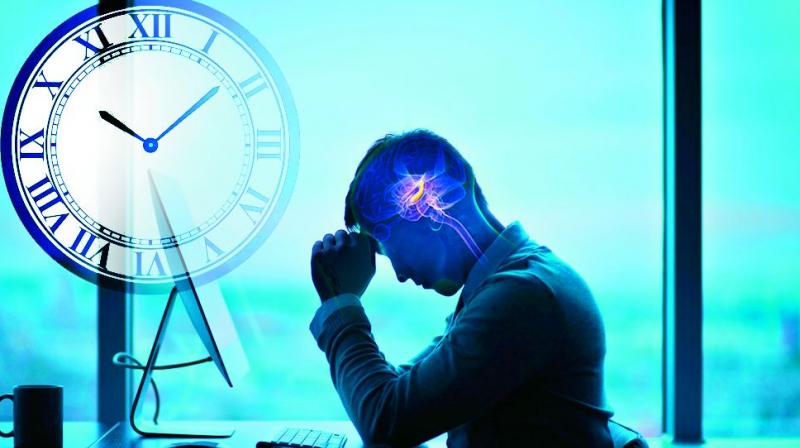Stress the silent killer
The effects of stress are often subtle and it sometimes takes multiple consultations and keen observation to pick up stress related disorders.

Stress affects people of all age groups physically, emotionally and psychologically, leading medical experts to not only look at it in isolation, but as an important aspect in terms of identifying hypertension and diabetes.
However, since the symptoms of stress vary widely from one person to another, it sometimes requires a team of specialists to identify and control the problem. A combined effort is the key to better management and outcomes in terms of treatment, explains Dr Syamala Aiyanger, senior consultant, physician and diabetologist at Apollo Hospitals.
What are some of the identified, evidence-based physical effects of stress?
Stress is often listed as a causal factor of many lifestyle disorders but objective signs of assessing stress and cohesive scientific parameters are lacking. Most data correlating stress and illness is retrospective and subjective in nature.
With stress levels differing from person to person, how can it be judged at the clinical level and which age group is found to suffer from it the most?
With a major shift in our lifestyles and the ever increasing demands of our society, the most affected people are middle-aged professionals and adolescents. Most of the time, judging these effects comes with clinical experience. There is no foolproof method to quantify stress. It requires assessment of their lifestyle through investigation, questioning them about their troubles and deriving answers from those.
People who have deep seated anxiety, fear of letting their parents down, meeting the demands of the society, living up to an image and trying to get monetary gains are some of the most stress affected in the present times. Sleep disorders, which are identified in most of these sessions, also contribute to stress.
How do students, middle-aged executives, senior professionals and senior citizens get diagnosed with stress? What signs and symptoms do doctors look for?
The effects of stress are often subtle and it sometimes takes multiple consultations and keen observation to pick up stress related disorders. Moreover, stress often does not have a cause and effect relationship with disease. There are always multiple factors that contribute to the disease. In senior citizens for instance, loneliness is often one of the major factors apart from the age-related diseases that they suffer from. Stress is also one of the major reasons for impaired cognitive skills.
What are the five main warning signs of stress which people often tend to miss?
Warning signs vary but commonly include alteration in sleep cycles, eating disorders, fatigue, binge eating, mood swings, lethargy and weight fluctuations.
How can cognitive therapy change the course of negative thoughts to visualise the bigger picture and help cope with stress?
Inculcating cognitive behaviour therapy for treatment of stress has proved to be an uphill task. Firstly, the person suffering from high levels of stress must accept that they are indeed stressed. This requires centering of the emotions and working towards de-stressing. Therapy requires considerable time spent with counselors and also constant interaction with healthcare workers. Offices, colleges and institutes must also have qualified counselors who can help people deal with stress.

